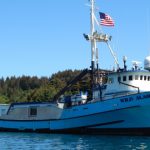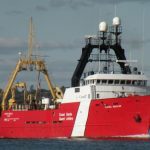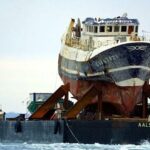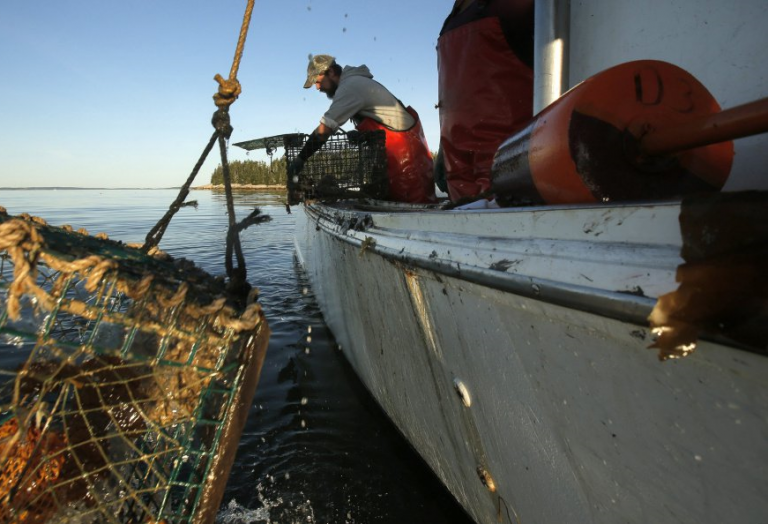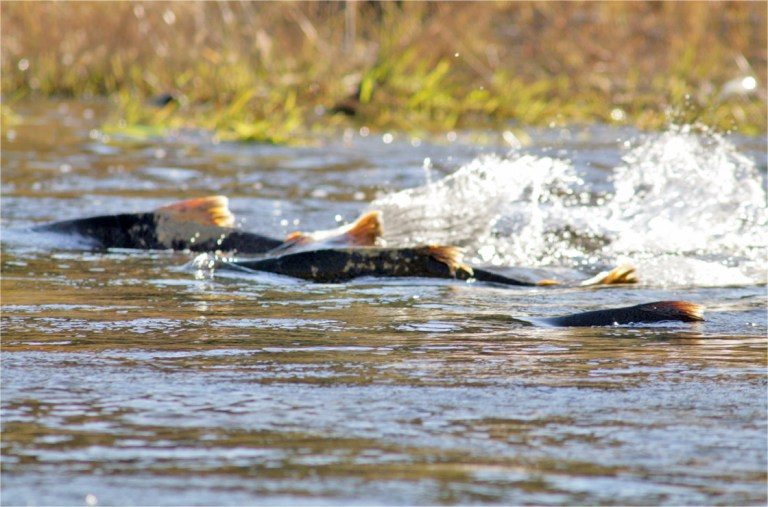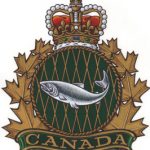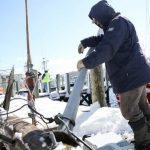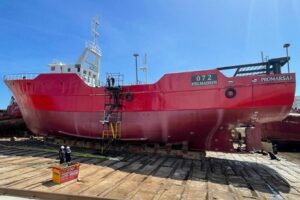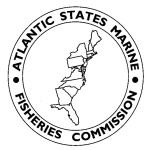To Be A Crab Fisherman, it takes guts. by Joe Hall
To Be A Crab Fisherman

Fishing is one of the most growing, beneficial forms of hunting, I have found. I was raised in Idaho by a father who would take me fishing on the Owyhee River in Oregon. It was always a fun activity for the both of us, and I’ll never forget the talks and the times spent with him as we patiently learned to be patient, waiting for just the smallest bite, and sometimes coming home with nothing. Unfortunately, fishing with my dad isn’t something that happens very often anymore with me living in Alaska. But due to the move, I’ve been able to expand my knowledge from what my dad taught me by acquiring quite a bit of knowledge about fishing for king crab. And here’s what I found: King Crab fishing takes guts.
Don’t get me wrong, fishing for King Crab has gotten safer in recent years. If you didn’t know, at one point it was considered the world’s most dangerous job (not really sure what that title goes to now…). But regardless, the famously known Alaskan King Crab fisherman still have to be in great physical shape to face the world of low temperatures, heavy equipment use and the dangers of high waters – for three to four weeks at a time. Alaskan King Crab Company’s website even writes, “the fatality rate is 90 times that of the average US worker.” Ouch.
Dangers come in many forms in the field of crab fishing. Being winter time and up in Alaska of all places, just the temperature out at sea is a major cause of things like hypothermia. Also, working with 800-pound steel crab pots (keep in mind, they are 800 pounds before they are filled with crab), for three to four weeks in conditions that extreme takes one heck of a toll on your body. Even with the amount of deaths in Alaskan King Crab Fishing dropping 51% since 1990 to 2007 (due to safety measures required by the government, of course), it’s still quite the dangerous job, however. Just the time of year and temperature of the water calls for extra safety measures in case of falling overboard or catching hypothermia.
Of course, choosing to do something like this doesn’t come without some kind of passion. Many crab fisherman have quite the liking for fishing as a sport, the open waters, or the large amount of money they make in a short period of time. Some even like the danger. It’s definitely not something you go into uninformed or underprepared. It takes every bit of strength a man has, and he’s either all in or he’s all out.
The other thing that Alaskan King Crab fishing does is it brings shipmates together as family. You may have observed something like this on shows like Deadliest Catch, actually. Like them or not, you are forced to work with people in the worst of conditions under the risk of life and health nonstop for a period of time – there is no way that some sort of bonding cannot occur in life or death situations such as this. And it brings even the worst of acquaintances to a clos likeliness of family.
Next time you eat crab, think of what it took for someone to get you the food on your plate. True, they get paid more than almost anyone. But not without risking their lives and health. It’s frankly a dangerous place to be at the worst time. But for some reason they see that it’s worth it to go out on dangerous seas and risk their lives for it.

































